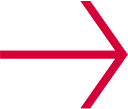Topics
This symposium will treat the impact of Artificial intelligence (AI) and Machine Learning (ML) on chemistry and biology, including drug design. The underlying theme of the discussions will be what we can now do with AI and ML that we couldn’t do before. For instance, is AI simply a new interpolation method in the old traditional computer-aided drug design (CADD)? Are the methods applied nowadays unreliable in contrast to the those applied in the early days? How can we combine the development and application of new materials with AI-generated knowledgebases? How much can AI help in the prediction and retro-synthesis of new chemical compounds, and how useful are these compounds? Still, the quality of published data matters as meaningful AI applications depend on the availability of high-quality test datasets.
These and more questions are planned to be addressed:
/chemical sensing
/chemical aided drug design
/protein structure prediction
/AI models from physical models
/synthesis planning
/human brain project
/medical image recognition, and other interdisciplinary topics
In the tradition of the Bozen Symposia participants from widely differing areas of specialization present provoking talks for a general but qualified scientific audience and researchers from the different disciplines come into contact and lead to fruitful “out of the box” discussions.


